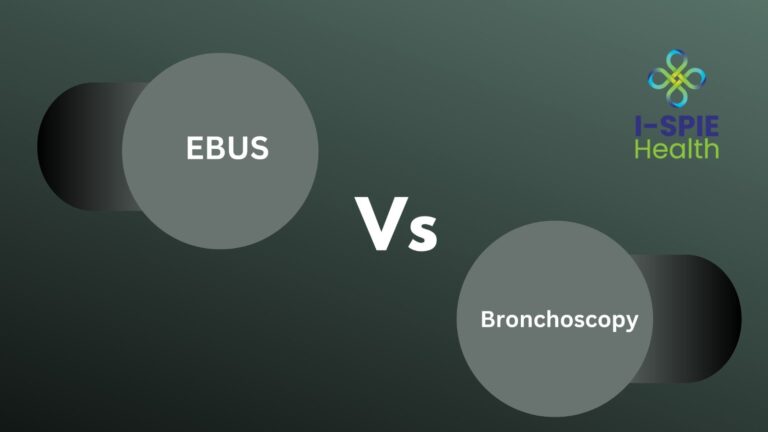Heel pain is a common complaint that can stem from various conditions such as plantar fasciitis, heel spurs, or Achilles tendonitis. It often affects daily activities and may require medical attention for relief. This blog explores the intriguing question, “Is Heel Pain A Sign Of Cancer?” shedding light on the importance of thorough evaluation and awareness.
While heel pain is typically associated with musculoskeletal issues or inflammatory conditions, there have been rare cases where it served as a symptom of bone cancers like osteosarcoma or metastatic cancers spreading to the bones.
Understanding the contexts and symptoms that accompany heel pain can help distinguish benign causes from potentially serious conditions. It also emphasizes the need for medical consultation when persistent or unusual symptoms arise, similar to what we discussed in Is a bowel leakage a sign of cancer?
Understanding Heel Pain
Common Causes of Heel Pain
Heel pain can result from several conditions affecting the foot and ankle. Understanding these causes helps identify and manage heel pain effectively.
- Plantar fasciitis: Inflammation of the plantar fascia, a band of tissue connecting the heel bone to the toes, commonly causing stabbing pain near the heel.
- Heel spurs: Bony growths that develop on the underside of the heel bone, often associated with plantar fasciitis or repetitive strain.
- Achilles tendonitis: Inflammation of the Achilles tendon, which connects the calf muscles to the heel bone, causing pain and stiffness at the back of the heel.
- Bursitis: Inflammation of the bursae, small fluid-filled sacs that cushion the joints, leading to pain and swelling around the heel.
- Stress fractures: Tiny cracks in the bones of the foot or ankle, typically caused by repetitive stress or overuse, resulting in localized pain, swelling, and tenderness.
Symptoms Associated with Heel Pain
Heel pain can manifest with various symptoms, ranging from mild discomfort to severe, debilitating pain. Understanding these symptoms helps assess the severity and identify potential underlying causes.
-
Description of typical symptoms:
-
- Mild pain: Often felt as a dull ache or soreness, especially after prolonged standing or physical activity.
- Moderate pain: Sharp or stabbing pain localized to the underside or back of the heel, typically worse in the morning or after periods of rest.
- Severe pain: Intense pain that interferes with walking or bearing weight on the affected heel, accompanied by swelling, redness, or warmth.
-
Differentiating between mild and severe pain:
-
- Mild pain: Generally manageable with rest, ice, and over-the-counter pain relievers.
- Severe pain: Requires medical attention, as it may indicate more serious conditions such as fractures, infections, or, rarely, cancerous growths affecting the bones or soft tissues of the heel.
Burping and Cancer
Burping, or belching, is a natural bodily function that helps release excess air from the stomach through the mouth. It is typically caused by swallowing air while eating or drinking or by the fermentation of undigested food in the stomach.
While burping is commonly benign and often related to dietary habits or digestive issues such as indigestion or gastroesophageal reflux disease (GERD), persistent or unusual burping can occasionally be a symptom of gastrointestinal cancers. Cancers of the esophagus, stomach, or pancreas, for example, may cause obstruction or irritation that leads to increased gas production and frequent burping.
Understanding the context and accompanying symptoms is crucial in distinguishing between benign causes and potential indicators of underlying malignancies. This highlights the importance of medical evaluation for persistent or concerning symptoms.
Can Heel Pain Be a Sign of Cancer?
Heel pain is usually due to musculoskeletal issues, but in rare cases, it may indicate underlying cancers affecting the foot. This can include primary bone cancers like osteosarcoma or metastatic cancers spreading to the bones, causing localized pain, swelling, and tenderness.
While uncommon, it underscores the need to investigate persistent or unexplained symptoms to rule out serious conditions, especially when conventional treatments for musculoskeletal causes do not alleviate discomfort. However, you need to take care of the following cases.
- Lung Cancer Presenting as Foot Pain
While lung cancer typically presents with respiratory symptoms, it can occasionally manifest as foot pain due to metastasis to the bones, including those in the feet. Metastatic lesions in the bones can cause pain and other symptoms related to the affected area.
- Lung Cancer Presenting as Heel Pain
Specific cases have shown that lung cancer can lead to heel pain when metastatic tumors affect the bones of the foot, particularly the calcaneus (heel bone). These metastases weaken the bone structure, causing localized pain, swelling, and discomfort.
When to Be Concerned
Red Flags and Warning Signs
- It’s essential to be vigilant about foot pain, especially when Persistent or worsening pain occurs despite using conventional treatments. Additionally, it’s crucial to pay attention to accompanying symptoms, such as unexplained weight loss, fatigue, or swelling.
Importance of Early Diagnosis
- Early detection plays a pivotal role in the successful treatment of cancer. Therefore, it’s important to seek medical advice promptly if you experience any of these concerning symptoms.
Diagnosis and Medical Evaluation
Diagnostic Procedures for Heel Pain
- To diagnose heel pain, doctors perform a physical examination and may order imaging tests like X-rays, MRI, or CT scans to identify any abnormalities. If cancer is suspected, a biopsy might be necessary to analyze a tissue sample.
What to Expect During a Medical Consultation
- During a consultation, the doctor will ask about the onset, intensity, and characteristics of your pain, along with any other symptoms like swelling or weight loss. Providing a thorough medical history, including past injuries, Surg.
Treatment Options If heel pain is a sign of cancer for you!
Treating Heel Pain
- For non-cancerous causes of heel pain, treatments typically include rest, physical therapy, medications, and orthotics to provide support and alleviate discomfort. If heel pain is related to cancer, treatment focuses on addressing the underlying cancer through surgery, chemotherapy, or radiation therapy.
Managing Pain and Improving Quality of Life
- Effective pain management strategies, such as medications, physical therapy, and lifestyle modifications, can significantly improve quality of life. Additionally, support resources for patients, including counseling and support groups, are essential for coping with the physical and emotional challenges of cancer-related heel pain.
Preventive Measures and Healthy Practices
Preventing Heel Pain
- Wearing proper footwear that provides adequate support is crucial to preventing heel pain. Regular exercise and stretching can help maintain flexibility and strength in the feet and ankles. Additionally, maintaining a healthy weight reduces stress on the feet, lowering the risk of developing heel pain.
General Cancer Prevention Tips
- Adopting a healthy diet rich in fruits, vegetables, and whole grains can reduce cancer risk. Avoiding tobacco and excessive alcohol consumption is essential for cancer prevention. Regular medical check-ups and screenings enable early detection and treatment of potential health issues, further enhancing overall well-being.
Concerned about heel pain and its potential connection to cancer?
Are you wondering if your heel pain could indicate something more serious, like cancer? Don’t wait to find out. Get informed about the potential links and take proactive steps towards your health.
Get Clarity Now With Madhavi Parikh
When to Contact a Healthcare Provider
You should contact a healthcare provider or patient advocate if you experience persistent or worsening heel pain that doesn’t improve with rest or conventional treatments. Additionally, if your heel pain is accompanied by other symptoms such as unexplained weight loss, fatigue, swelling, or redness, seeking medical advice is crucial.
Timely intervention and professional evaluation are essential to accurately diagnose the cause of heel pain and initiate appropriate treatment. Early diagnosis can prevent complications, address underlying conditions effectively, and improve outcomes, especially if the pain is related to a serious condition like cancer.
FAQ
Can heel pain be a sign of cancer?
While heel pain is typically caused by musculoskeletal issues, in rare cases, it can indicate cancer, particularly if the pain is persistent and accompanied by other symptoms such as unexplained weight loss or fatigue. It’s important to seek medical advice for persistent or unexplained heel pain.
What should I do if my heel pain doesn’t improve with rest and conventional treatments?
If your heel pain persists despite rest and conventional treatments, you should consult a healthcare provider. Persistent pain may indicate an underlying condition that requires professional evaluation and treatment.
How can I differentiate between common heel pain and cancer-related heel pain?
Cancer-related heel pain is usually persistent and may be accompanied by other symptoms like unexplained weight loss, fatigue, or swelling. If you experience these symptoms along with heel pain, it’s important to seek medical evaluation.
What are the treatment options if heel pain is related to cancer?
If heel pain is related to cancer, treatment will focus on addressing the underlying cancer. This may include surgery, chemotherapy, radiation therapy, or a combination of these treatments. Pain management strategies will also be implemented to improve quality of life.








One Comment